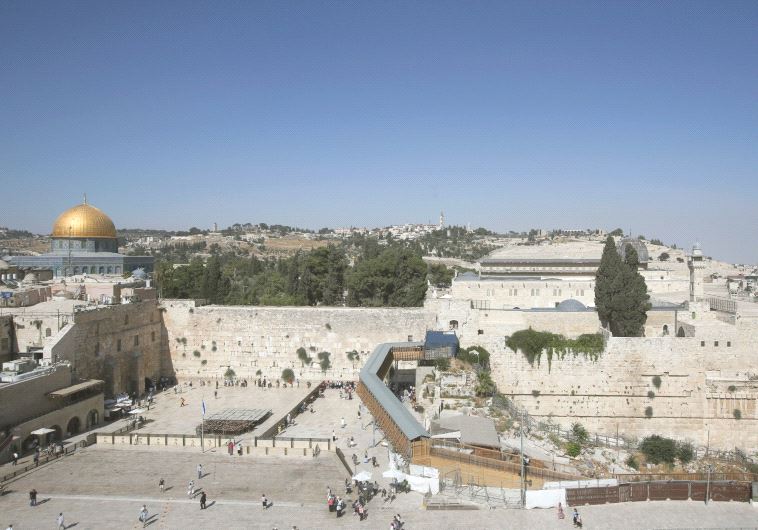Comment: Move the US Embassy to Jerusalem?
Yes, but only after a peace deal with a Palestinian capital in the city's east.
 A view of the Western Wall, the Temple Mount and Dome of the Rock in Jerusalem(photo credit: MARC ISRAEL SELLEM/THE JERUSALEM POST)
A view of the Western Wall, the Temple Mount and Dome of the Rock in Jerusalem(photo credit: MARC ISRAEL SELLEM/THE JERUSALEM POST)